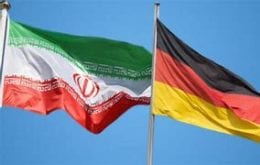AP — A top Iranian general arrived in Baghdad this week to try and unify Iraq’s fractured political leaders, Iraqi officials said Wednesday, as stiff opposition by one major bloc thwarts chances the country’s latest prime minister-designate can form a government.
Meanwhile, revenues from oil exports were slashed by nearly half due to plummeting oil prices in March, according to figures released Wednesday by the Oil Ministry, pushing Iraq into deeper economic uncertainty amid political dysfunction and the coronavirus pandemic.
Esmail Ghaani (Qaani), head of Iran’s expeditionary Quds (Qods) Force, arrived in Baghdad late Monday, Iraqi officials said, in his first public visit to Iraq since succeeding slain Iranian general Qassim Soleimani. His arrival at Baghdad airport came amid a curfew to stem the spread of the coronavirus that has halted inbound and outbound flights.
The four Iraqi officials spoke on condition of anonymity in line with regulations.
Soleimani, along with Iraqi militia leader Abu Mahdi al-Muhandis, was killed Jan. 3 in a Washington-directed airstrike outside Baghdad airport. The attack led to deteriorating U.S.-Iraq relations and prompted Iraqi lawmakers to call for the withdrawal of U.S. troops in a non-binding resolution.
After arriving, Ghaani left the airport under tight security in a three-vehicle convoy.
Known for his ability to make even the staunchest Iraqi rivals see eye-to-eye, Soleimani had made frequent trips to the Iraqi capital to forge unity during times of political paralysis.
Ghaani’s visit coincides with a burgeoning crisis in Iraq as Prime Minister-designate Adnan al-Zurfi faces resistance from some powerful political elites. Meanwhile, there is deepening fragmentation across the political spectrum. Selected on March 16, al-Zurfi has 30 days to present a Cabinet lineup.
One of the Iraqi officials who spoke to the AP said Ghaani suggested in the meetings that Iran and the Revolutionary Guard do not want al-Zurfi to be the next prime minister.
Amid the ongoing leadership void, an economic crisis is also brewing.
The Oil Ministry said Iraq had earned $2.9 billion in oil revenues in the month of March, down by nearly half compared to February. Oil sold at an average price of $28 per barrel, according to spokesperson Assem Jihad. In February, by contrast, Iraq earned $5.05 billion based on an average price of $51 per barrel.
Iraq relies on oil revenues to fund over 90% of state spending. The 2020 budget projected an oil price of $56 per barrel to fund expenditures.
Experts have warned that if the slump in oil revenues is prolonged, Iraq will be unable to pay public sector salaries, a step that will likely lead to more unrest.
The government has been taking steps to conserve dollar reserves and cut back on spending.
 Shabtabnews In this dark night, I have lost my way – Arise from a corner, oh you the star of guidance.
Shabtabnews In this dark night, I have lost my way – Arise from a corner, oh you the star of guidance.


